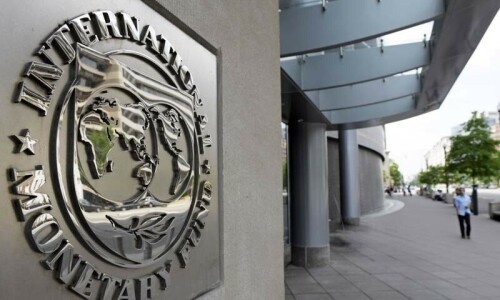ISLAMABAD: The Supreme Court on Thursday observed that the petitions seeking the disqualification of Prime Minister Nawaz Sharif constituted a case of public importance, because it involved the fundamental rights of the 200 million people of Pakistan.
“The writ of quo warranto may not be relevant in this case because it is a question of disqualification of the prime minister in relation to public importance and the fundamental rights of the public, because he holds the office of the chief executive and represents the federation,” observed Justice Asif Saeed Khosa, who heads the five-member Supreme Court bench hearing petitions moved by the Pakistan Tehreek-i-Insaf (PTI) and Jamaat-i-Islami (JI).
During Thursday’s proceedings, Justice Ejaz Afzal Khan also observed that the court might examine whether the disqualification of an elected member could be sought by invoking the question of quo warranto (which asks a person to show under what authority an office or franchise is held, claimed, or exercised).
Sharif’s counsel argues that Panamagate petitions are a classic example of ‘personal dispute’
The observation came when Makdhoom Ali Khan, who represents the prime minister, argued that the Supreme Court would have to consider what standards to apply for disqualifying an elected member in a petition moved by the invocation of Article 184(3) of the Constitution, which empowers the court to enforce citizens’ fundamental rights.
To knock out Nawaz Sharif as prime minister, the court had to first disqualify him as a member of the National Assembly, the counsel said, adding that since disqualification was being sought by the petition, the question of quo warranto would apply.
“Do not expect us to abdicate our jurisdiction,” Justice Sheikh Azmat Saeed observed, adding that the petitioner’s case was not a classical case of quo warranto.
“Personally, I am in favour of expanding the scope of the Supreme Court’s jurisdiction rather than contracting it,” the judge observed.
When the counsel highlighted that the documents submitted against the prime minister came from Mossack Fonseca, Justice Khosa recalled that the law firm had more than 13,000 clients. “And this is just one firm; there are many more,” the judge observed.
Here, the counsel highlighted that both the Roosevelt Hotel in New York and the Scribe Hotel in Paris were also owned by the national carrier, PIA, through offshore companies.
Making investments through offshore companies was not illegal, but the concealment of wealth and evasion of taxes was, quipped Justice Khosa.
Makhdoom Ali Khan then argued that though his client had not challenged the maintainability of the present petitions, the court would have to keep in mind the scope of Article 184(3).
While enforcing fundamental rights, the court will consider other competing rights also guaranteed in the Constitution, such as Article 10A that asks for due process and a fair trial, Article 17 that ensures freedom of association and Article 25, which guarantees equality of citizens.
The counsel argued that he was not disputing the fact that the Supreme Court could adopt an inquisitorial approach if it felt appropriate, but an inquisitorial approach in public interest litigation stemmed from the realisation that matters of general public importance might require active court intervention through a fair trial.
Environmental issues were the best example because due to those, the whole society might suffer, the counsel illustrated. Consequently, the court could ask questions because society itself did not ask questions or because the affected persons were too weak and too poor to effectively represent themselves, he said, while citing a number of judgements and case law.
In such instances, the court adopted an inquisitorial approach for the protection of public rights by speaking for the voiceless and the silent people. But in this case, the court was not dealing with public rights; this was a classic case of a private dispute, stated the counsel.
Therefore, in the exercise of its constitutional jurisdiction under Article 184(3), the apex court does not adjudicate questions of fact, but rather, operates on the basis of admitted documents.
The prime minister, the counsel emphasised, was not saying that the apex court could not decide disputed questions of fact, but was pleading that if the court decided to adjudicate, it would have to adopt the same procedure as used by other courts.
This included the framing of issues, requirement of documents to be proved, calling of witnesses and their cross-examination etc, the counsel told the court, reminding judges that they could not pick and choose.
When the hearing concluded, Justice Asif Saeed Khan Khosa expressed his gratitude to Makhdoom Ali Khan, saying that his arguments were exceptional and it was a treat to hear them.
“My only regret is that the courtroom is so small, otherwise I would have directed all young lawyers to come and listen to the counsel; it would have taught them what advocacy is all about,” Justice Khosa observed. “Why just young lawyers,” Justice Saeed quipped, hinting that the not-so-young would also benefit.
Since Makhdoom Ali Khan has concluded his arguments, JI counsel Taufiq Asif and petitioner Tariq Asad will take the rostrum on Friday.
Published in Dawn, January 20th, 2017







































